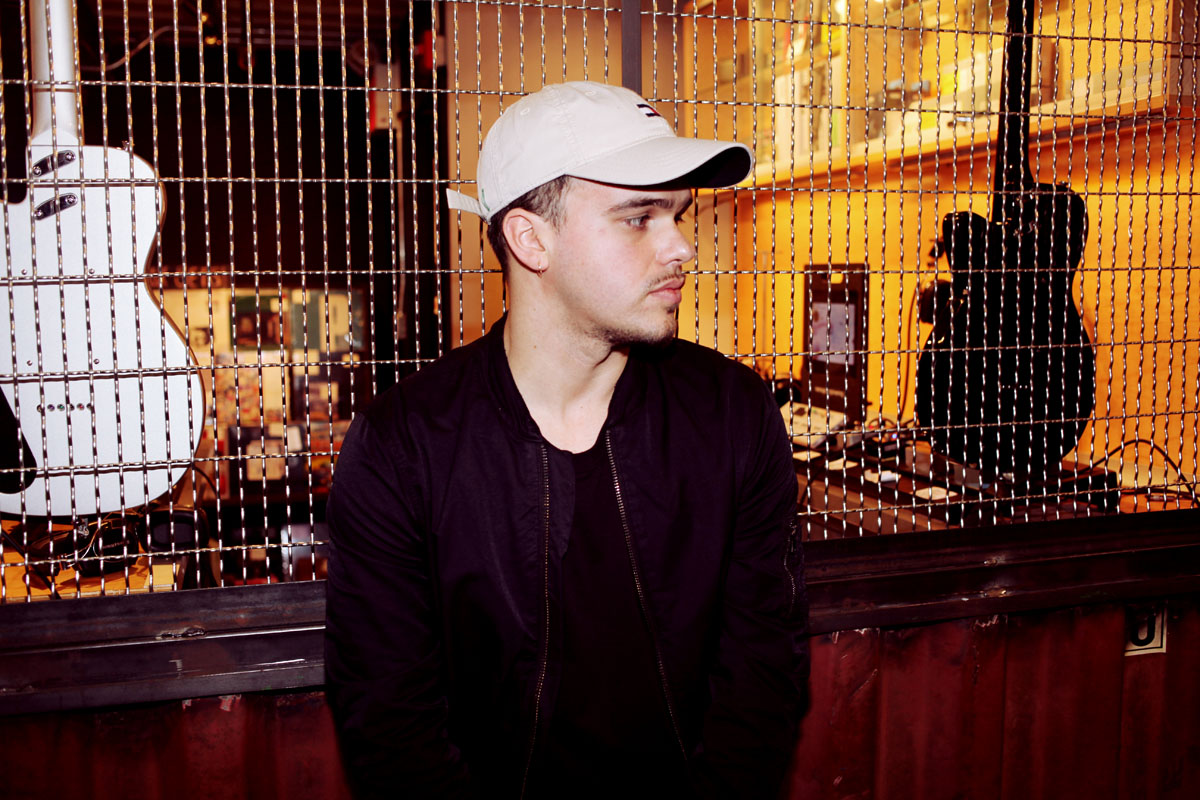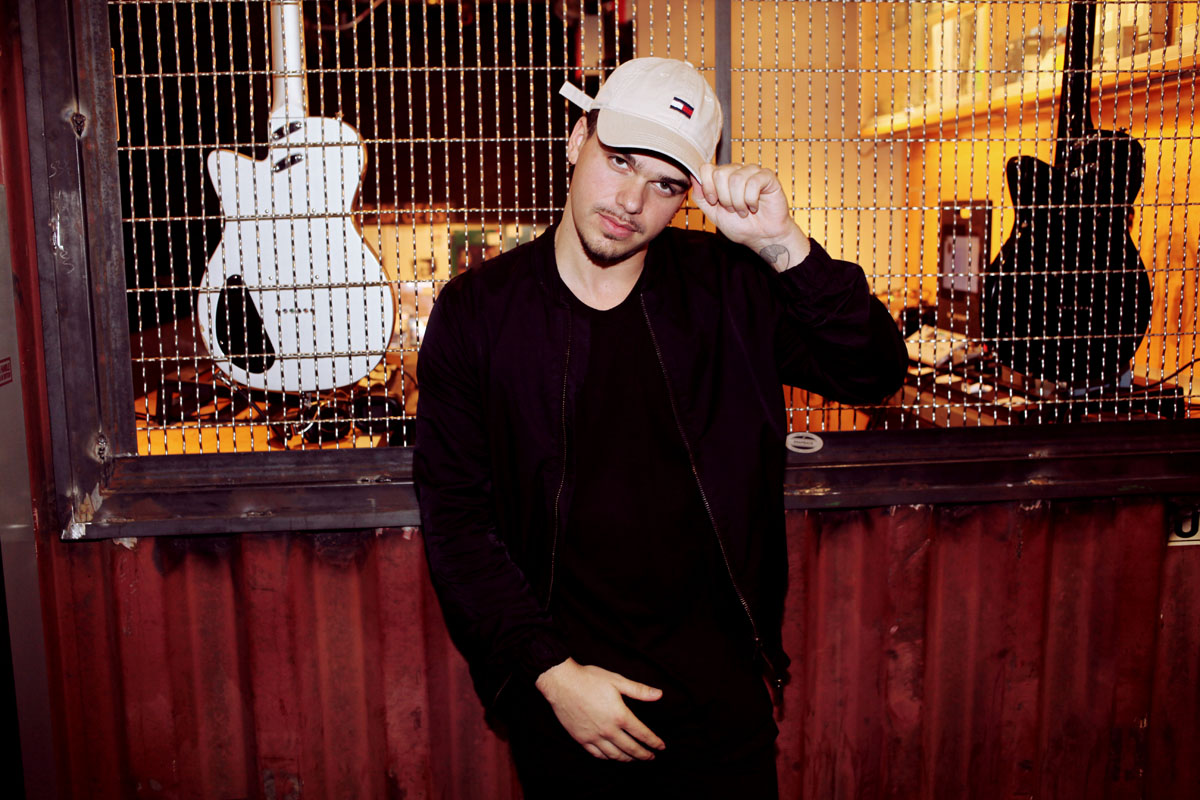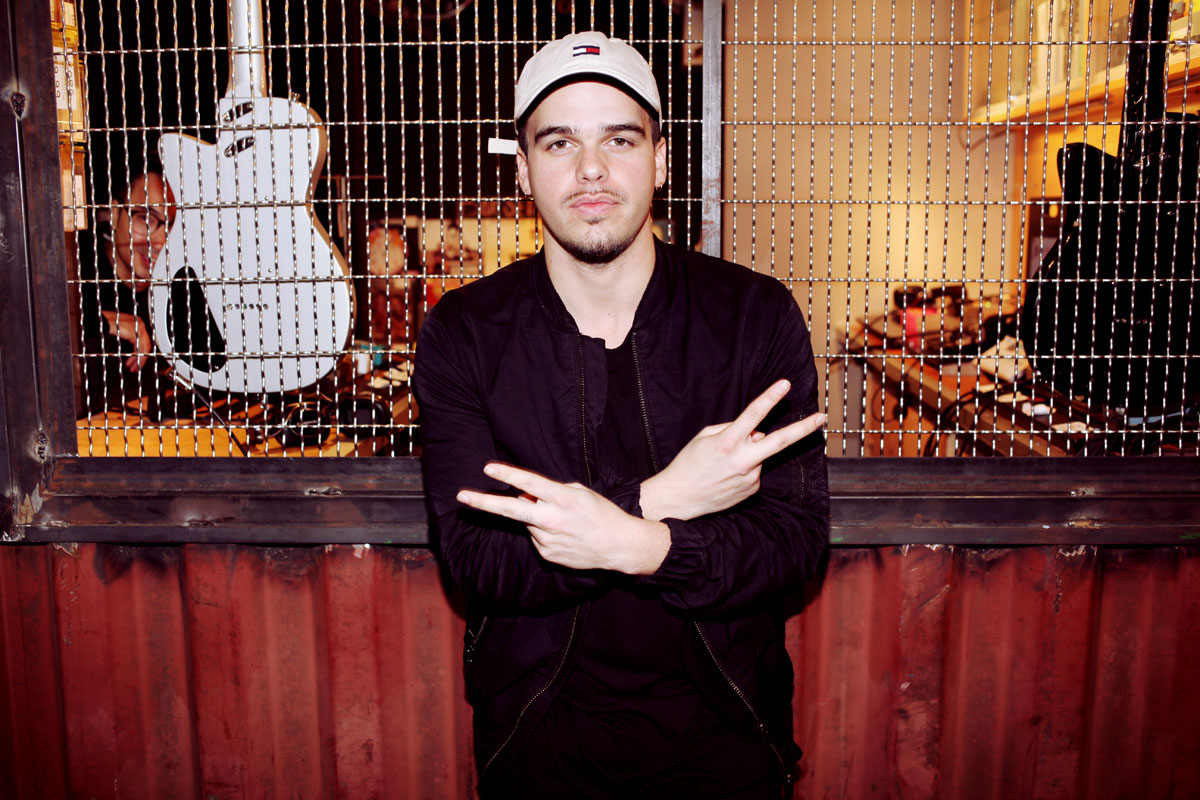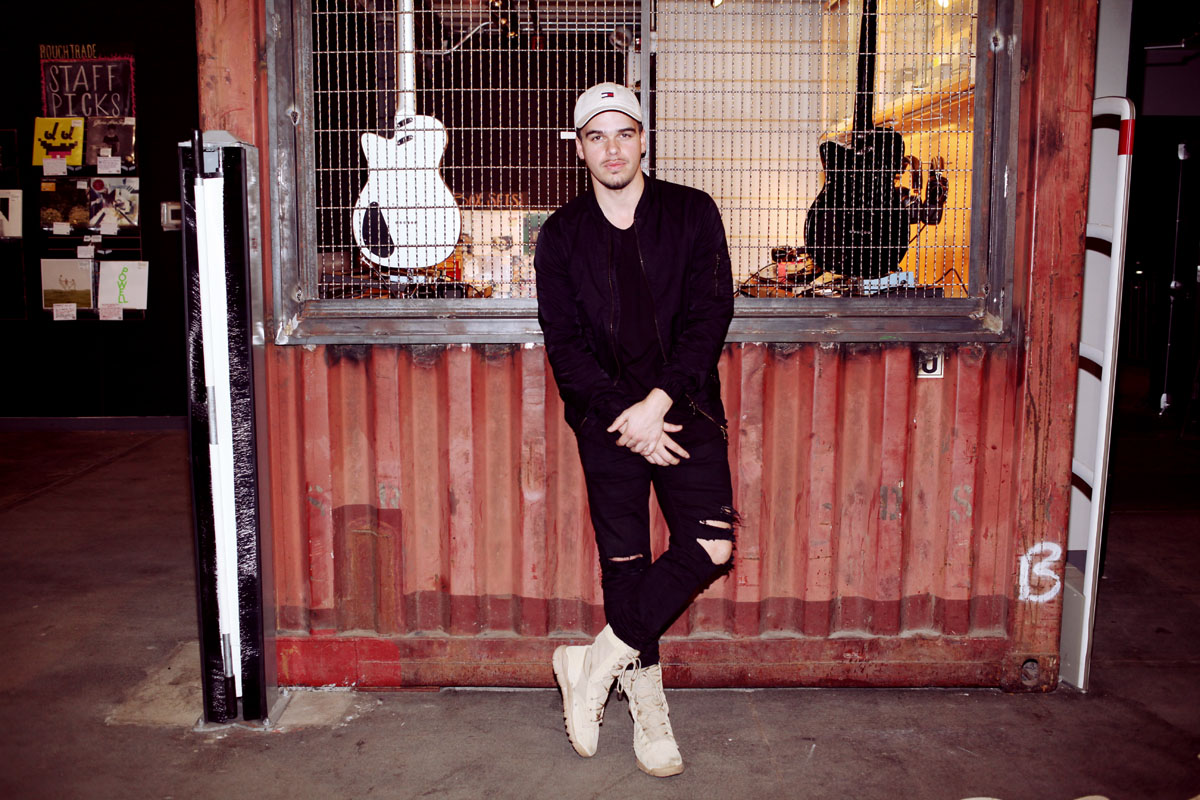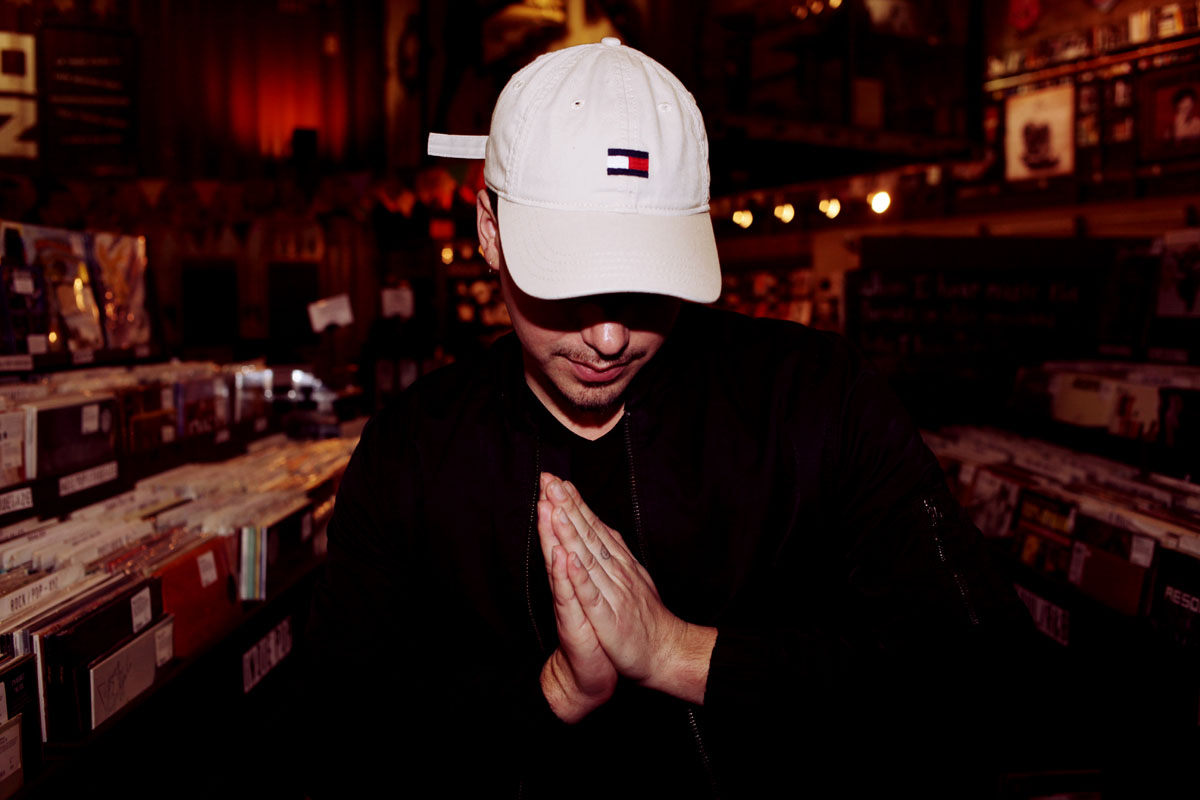Falcons is a name to remember. The LA producer + DJ, Michael Graham, better known as Falcons, swiftly became a Sound Cloud – celebrity, with support from the likes of Diplo, RL Grime, Ryan Hemsworth and Djemba Djemba. Since then, he’s been taking the LA dance scene by storm with his Athletixx crew. This past year under Fool’s Gold he released his most recent EP titled Terra, an experiential compilation of music exploring the natural world in combination with electronic and hip-hop music. 2015 brought Falcons a headlining tour around the world, but he has even bigger plans for the upcoming new year and it is certain he is going to soar.
Interview & Photography by Lauren Engel & Mike Greene
How has growing up in different locations affected your music process, and why have you moved so much?
I moved so much because of my family. I grew up all over the South. I definitely accredit the South and in a time when Texas was coming up. Slim Thug and Mike Jones—that was when I was in high school, so that was a huge part of my influence and my sound. But, at the same time, the art scene and everything I was into seemed to be flourishing more on the west coast.
How did you fall into that scene, moving so much? Do you feel like you had an underground to connect with?
I did, I used to be a break-dancer. I was a heavy part of the Southern dance community; I used to travel to do that, and compete. So, I definitely had that sense of community. I learned a lot from that.
How does that translate to music? Where do the two come into play?
You have a relationship with the DJ, as a dancer. It’s a freestyle form of dance. If a guy needs to transition out of a track, you kind of feel that coming. I wasn’t classically trained in anything. I took a little bit of guitar and a little bit of piano when I was a kid, but my understanding of rhythm and performance came from that.
Was there anyone in your life that influenced you getting into break-dancing?
I used to skateboard when I was a kid, and my mom would take my skateboard away, but couldn’t stop me from learning to dance. I would stay up late working on it in my room, or when I was supposed to be in school… *laughs* But that’s the real story. I’d be grounded and in my room, so I’d learn how to spin on my head or whatever. Of course, I also had mentors that taught me, when I was young.
“You have a relationship with the DJ, as a dancer. It’s a freestyle form of dance. If a guy needs to transition out of a track, you kind of feel that coming.”
Who were those mentors?
It’s a sub-culture; there’s a whole big scene. At the time, Texas was one top of the world—they were one of the best scenes. There was a crew called Jive Turkeys that I came up with. Also, my friend’s uncle from an old-school crew called Soul-Style. There were just people who passed down how to do it. This was before the Internet and YouTube—you had to learn from someone.
At what point did you finally make that transition into music?
I was always interested in making beats. I started doing that just for fun on a PC. Then I got a knee injury, which is when I started to focus my musical understanding onto something else. I was really into it; I self-taught everything from scratch, and it just picked up from there.
Was there any particular musician from your childhood that you were inspired by?
The first time I started caring about electronic music was when I found out about Aphex Twin, like warp records. Then, I started finding stuff like Flying Lotus in 2008. It was hip hop, but also very electronic—so, I guess that was the bridge.
What aspect of Southern rapper/hip hop do you reflect in your music?
It’s trap music, but it still has that soul element to it. It has feeling and those cord progressions—soul. All Southern music has some tie to real rhythm and blues.
What about being a part of Athletixx?
Those were just the people I was kicking it with; they’re just my best friends. We wanted to do a project that was a little clubbier, with a slightly different vibe, so we just crew-ed up.
What have you learned from them?
Being in a crew of musicians, you learn stuff every day. Musicians have egos; but we all still love each other and live with each other. I live with Hood Boi, so we kind of run the crew out of our house.
How do all collaborate together? How do you and Hood Boy play off of that?
When we all get together, we definitely know our strengths and our styles. Sometimes, there’s a moment for that; sometimes it’s you need to take the background on the track and just give input and critic. We’ve all learned how to give and take, in that respect. Since we’re friends, we can keep it really casual, as supposed to letting ego get all in it.
Is there any particular musician from your childhood that you or your parents listened to that effects how you create today?
My mom was really into techno and 90s dance music. As a kid, she was really into The Prodigy and mid to late-90s UK house. That’s not exclusively what she listened to… But, I remember when Prodigy’s The Fat of the Land came out, she would just blast that album; that was a huge thing for me to hear and see my mom support that style of music. I remember the videos were super trippy to see as a kid. My dad’s really into Southern blues and R & B—old school stuff. Him and my grandpa were both in the radio industry; they were radio hosts. My grandpa worked his way up to owning some radio stations. So, I used to be in radio stations a lot when I was a kid. I would do announcements and commercials and things like that—read the school lunch menu. I was always around that [environment]. I remember my dad and my grandpa having to edit their radio shows by pulling out tape, cutting it with a razor blade and gluing it back together. That’s the shit I would sit around and watch as a kid.
So they were both artists?
They were both musicians, but they were radio personalities as well.
Do you think you were born into this?
I always said I wasn’t going to do it; my dad always said: “you’re doing to end up doing this.” I wanted to do graphic design and I wanted to be dancer. I definitely did those things, but it all came full circle my dad was like: “I told you so.”
Your parents were full supportive?
They were very supportive of music! My dad knows the ins and outs of the industry, so he has a lot of advice. He also has concerns, of course, as any parent. But, he understands the route I’m going. They’re very supportive. They didn’t want me to be a doctor or a lawyer—that kind of situation. They’re cool with it.
At the end of the day, that’s kind of what matters most: that the people you care about most are fully backing you in everything that you do.
Yeah! I definitely was the radio station brat, growing up as a kid. My mom really understands electronic music and she vibes to my shit—I burn her CDs every time I go home. *laughs*
How did they fall into that kind of music?
My grandpa was actually a janitor at a radio station in Texas. He just slowly learned the ropes—this was back when there wasn’t any satellite radio or anything. He just worked his way up, ended up having a successful show and buying the radio station. My dad just fell into it from there.
That’s cool how it all comes full circle.
Yeah. The radio industry is super different now; it’s all controlled by satellite and there’s rules that you have to abide to. I think my grandpa’s radio station was the last one here he said ‘fuck you’ to that and put in what he liked—he curated his own shows. I definitely take that into consideration with my musical style too. It’s just curating a DJ set rather than a whole show.
Last question: an artist’s music is typically a reflection of themselves in one way or another, what does your music say about you?
It says: I like to have a good time, bro. *laughs* Nah, I take my products very seriously. The tracks I make are very serious, but there has to be an element of soul to it. It has to not be too cold, it has to be fun and it has to be relatable—even if it’s niche song, it has to have some element that brings people back into it.


